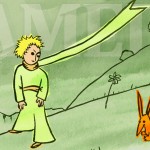Good OK-Drama is a very occasional series looking at various examples of Korean drama (the almost-popular, not-quite-underground wave of television excitement oozing out of your favourite digital video outlets).
In even the small sample of kdramas my wife and I have recently enjoyed (we’ve so far watched seven series to completion), we notice the reccurance of a handful of tropes. Sometimes it’s plot devices that have evidently proven popular with the shows’ intended audiences. Sometimes it’s common themes that fit well (presumably) within the programs’ cultural milieu. And then sometimes, as in the case of Coffee Prince, we see the indulgence of a trope that may exist primarily as social pedagogy.
Michelle and I have been enthusiastic admirers of most of the kdramas we’ve had the privilege of watching so far, but Coffee Prince is among our favourites—a status built almost entirely on the performance of Yoon Eun-hye, who plays series’ protagonist Eun-chan. The character, a tomboyish female who not infrequently gets mistaken for a man, sails through life with a buoyant exuberance and ease that wins her camaraderie and friendship from most everyone who crosses her path. The show’s plot is fraught with hi-jinks, revolving around mistaken identity and (as with many kdramas, it seems) colossal disabilities in the realm of interpersonal communication. Eun-chan’s boss Han-kyul, a straight man who believes her to be male, begins to fall for her—to great inner turmoil. And then Eun-chan herself begins to fall for Han-kyul, while hiding her femaleness—to great inner turmoil. It’s all very giddy and reckless and anxiety-inducing and I’d probably hate it if Eun-chan weren’t just so adorably charming. Still, what is played for comic melodrama in Coffee Prince gives us a good look at an idea that seems (at least from our small sample) to be pretty common across the landscape of the Korean drama.
Eun-chan isn’t particularly attractive in a physical sense—especially in comparison to other, more classically beautiful women in the show. She’s a rather raggled muffin, stomping around in pants and t-shirt and generally looking like a delicate college guy who just rolled out of bed. This is what the character looks like just after she’s introduced to us:
And she doesn’t particularly become any more “feminine” as the series progresses.
Even if he believed her to be female, Eun-chan is not remotely in the realm of what Han-kyul would have considered a viable recipient of his affections. His tastes had previously run to glamourous, well-put-together women who wouldn’t be out of place modeling fashions in magazines. So it’s not Eun-chan’s physical appearance that draws Han-kyul; rather he becomes attracted (enough to doubt his sexual preference!) wholly for his regard for her character. She has great moral fortitude, an untiring work ethic, strength of persistence, personal charm, a good sense of humour, and an almost entire lack of self-consciousness (at least so far as he can see). Han-kyul falls for Eun-chan not because of his libido but in spite of it. It’s not the shell of her beauty that woos him but simply the fact that she is a marvelous human being.
American shows occasionally try to embrace the story of the unattractive girl who becomes highly sought after by those who would otherwise choose “better.” The differences, however, are pretty stark. American stories tend to model their romantic vector after the Pygmalion formula. The unattractive girl becomes well-regarded after she is changed to reflect the male love interest’s aesthetic values. In My Fair Lady Eliza Doolittle earns Henry Higgins’ attraction when she can properly camouflage as a high society dame. In She’s All That, Zack Siler is left slack-jawed only after Laney Boggs’ complete makeover (not that she was ever convincingly able to portray an attractive woman) to the tune of “Kiss Me.” And once the transformation takes place, the female is able to return to being what the male desires at will.
Behold the coffee princes!
In Coffee Prince, on the other hand, Eun-chan never undergoes this kind of lasting transformation. The show toys with the idea, early on forcing Eun-chan into a dress to attend a gallery showing, but she is never able to inhabit the persona comfortably because that is foreign to who she is. She never endeavors to return to that kind of facade because she doesn’t need it. She is valued for the woman she is—and not for the woman Han-kyul imagines he’d prefer her to be. His desires are conformed to her person rather than vice versa.
And this is hardly a rare instance of the trope in kdrama. To equal or lesser degree, we’ve seen this at play in Secret Garden, Love Rain, and Queen In-Hyun’s Man. One might even make a believable case arguing the relationships in City Hunter and Sungkyunkwan Scandal into the fold. I’m not certain whether the commonness of this trope is pedagogical or reflective of the South Korean cultural identity, but if the nation’s people are anything like those of us in the West (and kdramas suggest this is probable), then the idea that Korean television might be promoting a bit of social engineering isn’t quite far-fetched. I mean, what better way to convince the males of a society that its women are to be valued for their character moreso than their looks than to craft show after show in which we can see that dynamic play out so very deliciously. Really, what human being wouldn’t want to fall so deliriously and satisfyingly in love as these characters seem to do. Definitely a better sales pitch than “If you wanna be happy for the rest of your life: get an ugly girl to marry you.”
Amusingly, the actress who plays Eun-chan is, in reality, very much in line
with what at least our culture would describe as A Beautiful Woman.
Coffee Prince is 17 episodes long and is currently available for viewing at:
Past articles Good OK-Drama have looked at City Hunter and Queen In-Hyun’s Man.














